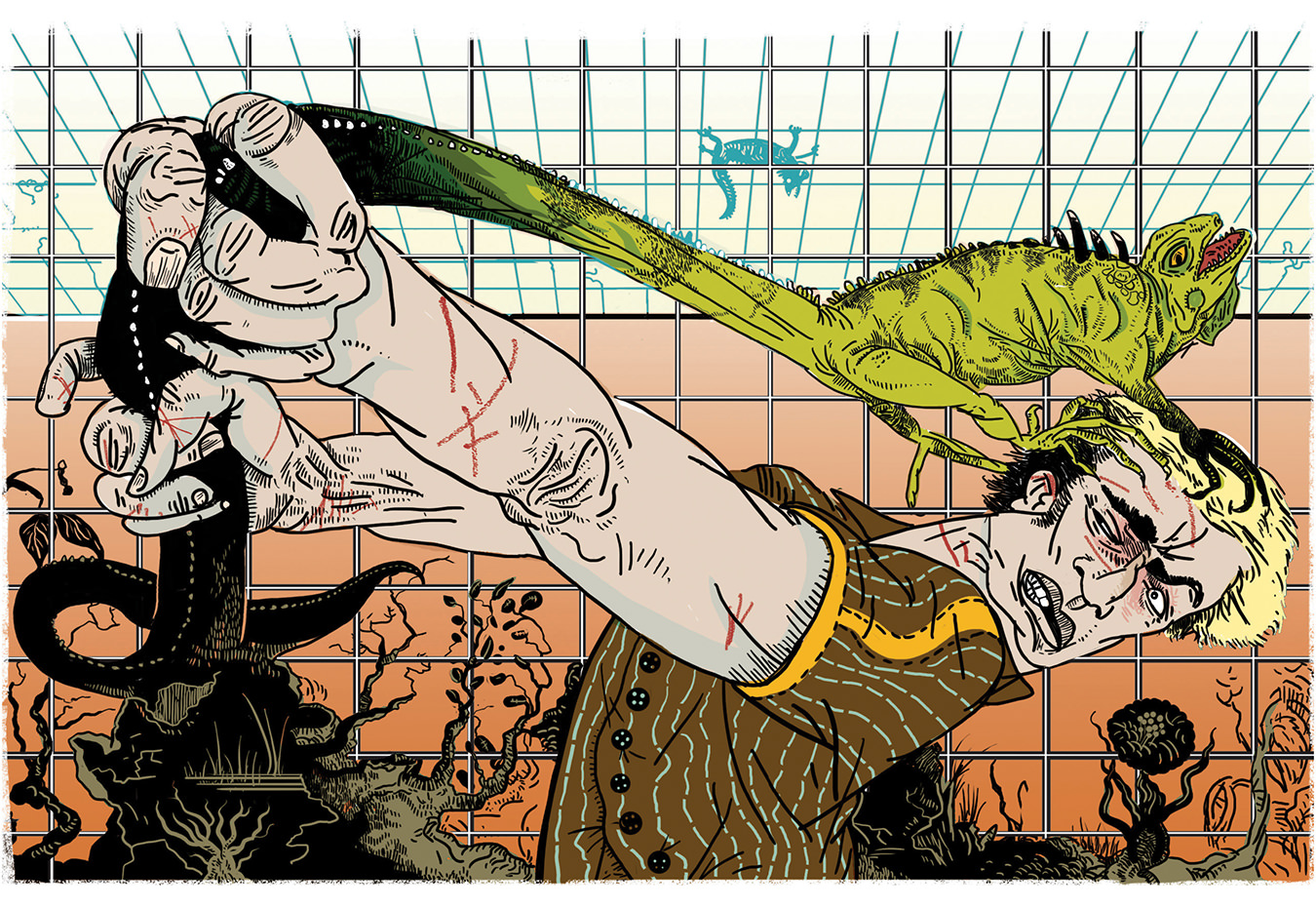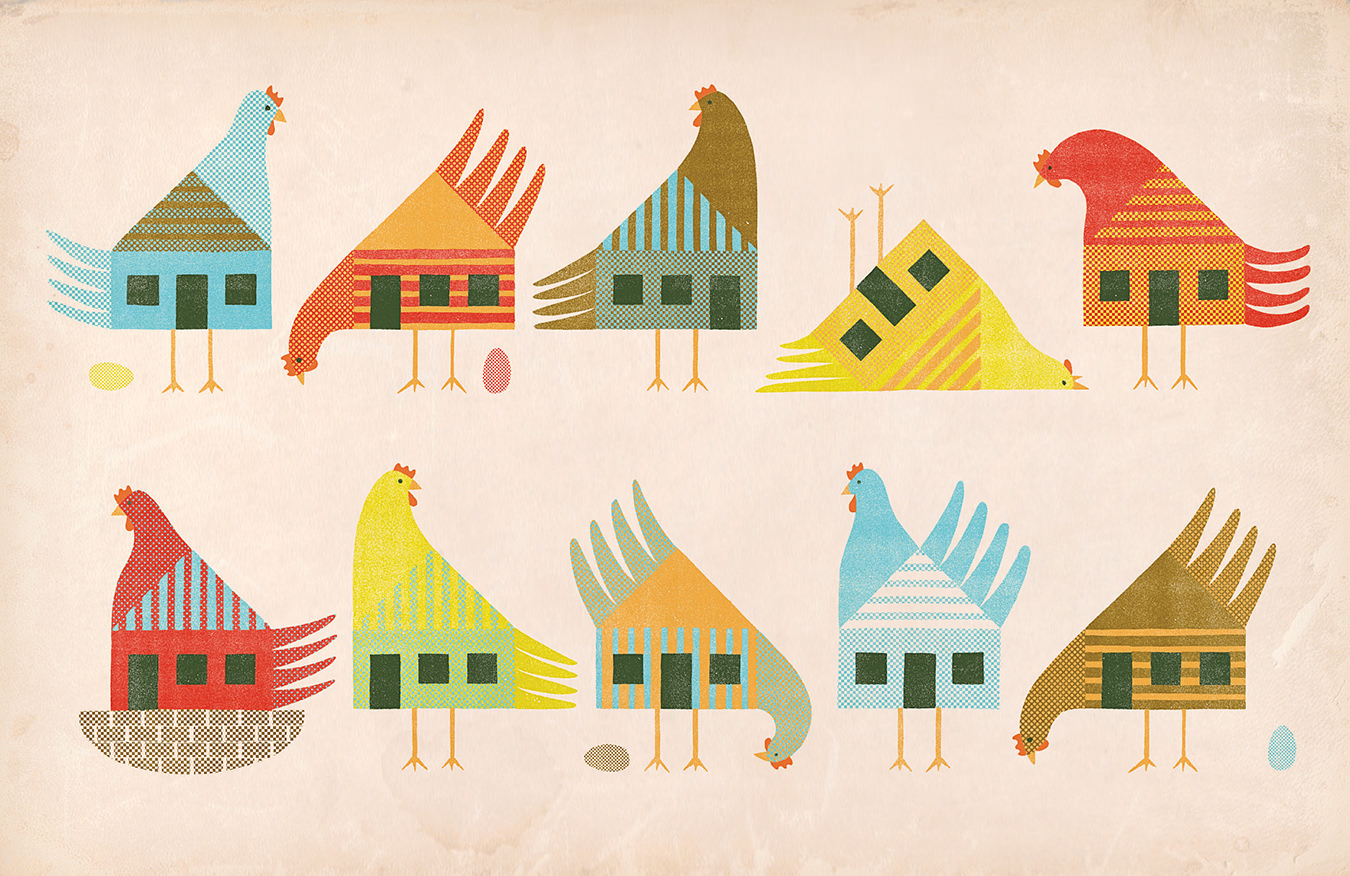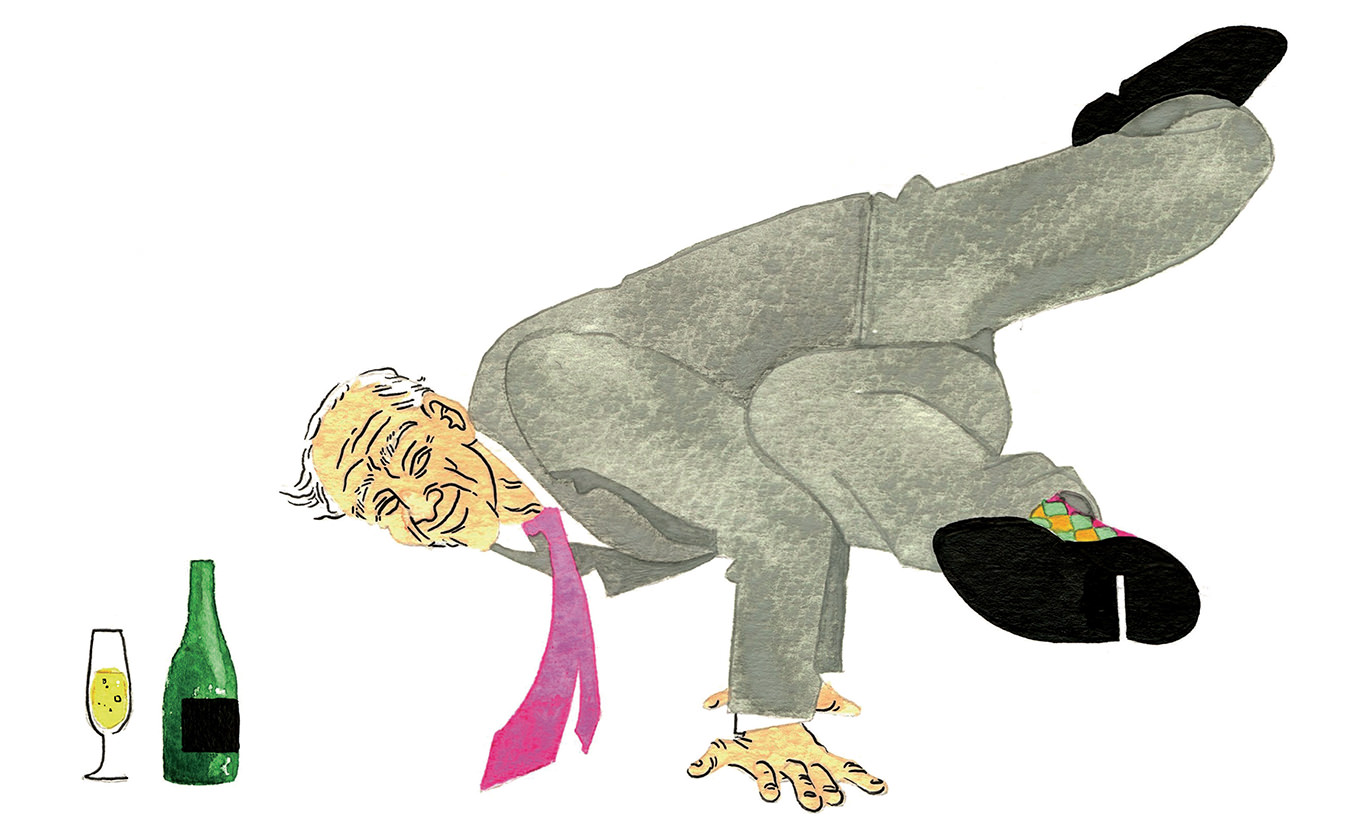Workplace Epics
Tough jobs.

As an activity that takes up a large proportion of our time, getting a job that doesn’t send you over the brink of insanity is probably a good thing. But given that most people tend to have several occupations over the course of their lives, you’re almost assured to have to endure at least one or two tough jobs. You know the ones: grouchy customers or clients, monotonous work, borderline-psychotic bosses. Jobs so rough, they make the more killer tasks on The Apprentice look as easy as tending bar at Cheers. Hopefully they’re at the front end of your career path, so you aren’t trapped for too long. The worst time for a bad job, though, has to be during your university years. Trying to maintain a balance between one’s necessary expenses (classes, books, beer, bail) and the inability to find a job paying more than minimum wage, on top of the stresses of school work and grades, can drive you mad. Social life? Forget it.
This coupling of an absolute lack of cash and a relative lack of sanity during my university years led me to the state of mind in which I was willing to try anything. Besides, this is the time when you’re supposed to be learning new things, experimenting, right? You’re taking the Corvette of life for a test drive before settling into a sedan with room for a kiddie seat or two. University years are one of the few times in one’s life when gratuitous errors and egregious mistakes are ignored, and can in fact be heralded as “character building”, so you’re a little more open to possibilities. And if you’re also desperate for work, you’re on your way to some nutty places of employment.
My first university-era summer job was thus predictably peculiar: I was hired on at a local tourist attraction as an airtram operator. At the time, I would have been more than happy to work fast food, or at a movie theatre, or at a coffee shop; but alas, no luck at the local employment office for positions with the words “Food” or “Retail” in the title, so I was forced to examine the board ominously marked “Other”. As a result, the beginning of my summer was spent piloting a tram up and down a mountain while giving a spiel about the geography and history of the area. At first it was a pretty good gig; lots of fun, chatting it up with tourists. For all the different demographics of people to have to deal with on a daily basis, tourists are among the best; they’re usually in a good mood, wanting to have a good time.
But ease and enjoyment at the airtram job came at a price, which we paid on the day that the bosses gathered together all the new employees and conducted a training workshop on the tram. What this entailed, I soon discovered, was sending the tram down the mountain and hitting the emergency stop midway. The braking mechanism was so powerful that it sent the car flying back and forth like a pendulum, all the while dangling precariously over a particularly menacing-looking cliff. Bad time to realize you have a fear of heights.
But it turned out to be good training as the tram controls were very sensitive, and sometimes, usually once or twice a day, the tram would emergency-stop on its own. It wasn’t a problem to get it started again (someone in the control room just had to hit a switch), but it terrified anyone on-board. And it had an annoying tendency to stop whenever I was transporting the most skittish of height-fearing tourists. We’d be on our way down, I’d be giving my speech—and it would stop and they would panic. In most cases, it wasn’t much of an ordeal; we’d get going again, and I’d wish the folks merrily on their way once we were on solid ground. But a few jumpy individuals seemed to consider me the gatekeeper of their impending doom. “You’ll kill us all!” were the exact words of one especially terrified guest. And swaying in the breeze over a huge chasm is not, I learned, the best place to rationally debate such a statement.
Aside from the torturous training and twitchy tourists, there was one other catch: my accommodation sucked. The only place I could find was a bedroom in an abysmal shack (literally; as in, a poorly constructed hovel perched on the side of a cliff), which I rented with a few other guys who were also doing seasonal work in the area. The place was infested with mice, and due to the dual fears of the hantavirus and demon possession (as the cabin’s ancient construction and isolated location evoked many a memory of The Evil Dead), I quit.
Checking in at the local employment office, I noticed that there was one position that had been vacant for some time. I applied, got the call, and before I had time to process it, I was working at an exotic animal shelter, catering to all manner of fauna including, but not limited to, snakes, iguanas, turtles, parrots and tarantulas. And after my first week, I would have sold my soul to be a barista trainee.
Here was a job that was not only physically and mentally taxing, but actually pretty dangerous; yeah, I was glad not to be dangling off the side of a mountain, but dealing with exotic wild animals on a daily basis wasn’t much of an improvement.
Here was a job that was not only physically and mentally taxing, but actually pretty dangerous; yeah, I was glad not to be dangling off the side of a mountain, but dealing with exotic wild animals on a daily basis wasn’t much of an improvement. Half of the job was quite mundane; the place gave tours to summer camps, so I found myself spending my time guiding groups of seven-year-olds through a hot, smelly building while taking questions about the dietary requirements of a python. The other half of the job? Wearing a facade of self-confidence and an aloha shirt, I had to clean cages, the trauma of which I am still coping with. Particularly nauseating was the iguana cage, in which upwards of 60 of the scaly beasts lounged about in trees while I washed the floor. I wore a hat because they inexplicably liked to jump onto my head as I cleaned, which lead to much mutual scrambling as I tried to lower the squirming iguana to the ground, all the while enduring scalp lacerations from its alarmingly sharp claws. This particular task was performed during normal public hours, so I usually had an enthralled audience enjoying the spectacle of my daily skirmish with the reptiles.
Later in the summer, when my super-visor sensed that I’d had a surfeit of iguanas jumping on my head, I was promoted. To snake feeder. Every Saturday, freshly killed rats were brought out by the all-too-literal bucketful. With nothing but a pair of tongs and a surge of adrenaline, I would open the cage door, throw the deceased rat into the enclosure, and lock it up quickly in case the creature in residence was hungry for more than just rodent tartare. My life was a depressing void: I arrived home in the evenings, smelling of turtle droppings and cursing my existence.
Unsurprisingly, I was ecstatic when school started. I wisely decided to trade novelty for normalcy and procured a job more pertinent to the English Literature degree I was pursuing: I worked at a bookstore. In my chequered history of employment, working at the bookstore was one of my favourite jobs. Most of my job entailed nothing more than walking around and talking to people about what books they were looking for, which authors they particularly enjoyed, and generally making bibliophilic small talk. I also shelved books, a task which was remarkably therapeutic in practice. The shelvers got the early-morning shift, and as I worked weekends, I regularly found myself with a cart of books at about 8:30 on a Sunday morning; at this time, I was often nursing a hangover. And say nothing to me of your folk remedies of vinegar-and-castor-oil, for I have found the true cure for a hangover: shelving a cart of self-help books. There’s nothing like staring at 50 copies of Dr. Phil’s latest bestseller to give you perspective. Well, that and a gallon of Perrier, I suppose.
The staff were a good group, and on those late Saturday nights when the customers were few and we were bored, we had a variety of activities to amuse ourselves. We once stole a roll of “Signed By Author” stickers (used when writers visited the store for press junkets and book signings) and stuck them on all the Bibles. Another fun gag was to take the magnetized theft-deterrent strips, put tape on the back, and put them on the floor, where some unsuspecting customer would inevitably step on one, then get frazzled when they set off the alarm trying to leave. And of course, the standard joke was the ironic miscategorization of books to emphasize hilarity. We used to put copies of Dan Brown books in the Religious Non-Fiction section and wait for the indignant wails to commence.
Later on, I got a job working at a copying place on campus that catered to over-caffeinated grad students who, having crashed their computer or broken their printer, would run up to the counter with seven minutes remaining until their grad thesis was due and pace back and forth in a state of near psychosis while I printed off their 300-page document on whatever sociological phenomenon was making headlines that semester. I also had to get up at 5:30 in the morning three times a week to drag my sleep-deprived body across campus to the shop to fill all of the building’s photocopiers with paper. This was an evil, evil task, and the ungodly hour at which I had to wake up, in addition to the transfusion-worthy number of paper cuts I’d get on a daily basis, made me desperate to quit. But I stuck with it until graduation, and celebrated the culmination of my matriculation by demolishing my class notes with an industrial-size paper shredder we kept in the back.
So when the working world finally sucked me out of school, I welcomed it, confident and poised. After all, I had graduated with a degree in English Literature and skills including critical analysis, snake-wrangling, literary research, airtram operation, book shelving and photocopy-repairmanship. Ready, indeed, for anything.
________
Never miss a story. Sign up for NUVO’s weekly newsletter here.




